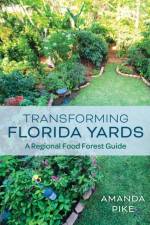- A Permaculture Garden and Food Forest Guide
av Amanda Pike
387
Food forests are the next step in sustainable home and community gardening. A food forest, or a forest garden, contains edible plants that mimic ecosystems and patterns found in nature. In order to enhance food security and practice permaculture in our own backyards and communities, it is key to understand which plants are best for local food forests and what they will grow alongside with harmoniously.Permaculture, or the philosophy of working with nature rather than against it, can teach us affordable, sustainable, and research-based ways to not only beautify our surroundings, but also lower the risk of food insecurity and help prepare us for population increases and continuous climate change. All one needs to successfully begin their food forest experience is one thing: a lawn.Florida is the perfect state for growing produce, herbs, and other edibles year-round. Most plants in a food forest do not need to be replanted every year, and food forests can take care of their own fertilization and pest control. Knowing which plants grow in which parts of the state (north, central, and south) is crucial, too, in order to successfully create a successful ecosystem. Florida Food Gardens offers readers not only key knowledge on the benefits of food forests and the basics of creating them, but the best plants to grow in any Floridian¿s backyard, community garden, or other environment. With 200 easy to follow, one page reference sheets for each plant (that includes recipes, cultural information, and much more), readers will be able to actively use the text as they prepare for planting their food forests.


